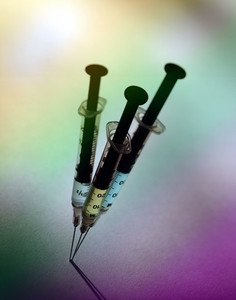A bill banning pay-to-delay, the practice by which originator and generics firms share the profit from drugs coming off patent rather than moving quickly to price reduction, is progressing slowly through the US legislature. It has made its way through the Senate Judiciary Committee but has not yet been approved by the Senate [1]. President Barack Obama has joined in, with a pay-to-delay ban in his 2012 budget proposal [2].
Bill to outlaw pay-to-delay moves ahead slowly
Home/Policies & Legislation
|
Posted 18/11/2011
 0
Post your comment
0
Post your comment

The Congressional Budget Office (CBO) has analysed the proposed pay-to-delay ban, and its money-saving estimate comes in at almost US$5 billion. According to CBO, the Preserve Access to Affordable Generic Drugs Act would cut direct healthcare spending - by Medicare for instance - by US$4 billion, plus increasing federal revenue by US$800 million.
Under the pressure of impending legislation, pay-to-delay deals may have tapered off and grown more subtle, but they are still happening. The potential pay-to-delay deals in 2011 accounted for only 18% of patent settlements, whereas pay-to-delay arrangements made up half of the patent deals in 2006 [3]. Patent deals have moved away from big cash payments to ‘more sophisticated transactions’. Cash transactions were easier to challenge. So the savings made may not be quite as dramatic as the US Federal Trade Commission (FTC) figures indicate.
The favoured deals are now ‘authorised generics’ [4]. Branded drugmakers are promising not to introduce their own generic versions to compete with the challenger’s first-to-file exclusive copies, said Federal Trade Commission’s Deputy Assistant Director, Mr Bradley Albert. Fifty-six of the 125 patent settlements the FTC have flagged involved that sort of promise, he said.
Not surprisingly, both originator and generics firms are against the ban. They say that patent settlements often result in generics being launched before a branded drug’s patent expires.
Related articles
Pay-to-delay debate hits South Africa
Problematic patent settlements in EU on the decrease
References
1. GaBI Online - Generics and Biosimilars Initiative. More debate over ‘pay-to-delay’ legislation in the US [www.gabionline.net]. Mol, Belgium: Pro Pharma Communications International; [cited 2011 November 18]. Available from: www.gabionline.net/Policies-Legislation/More-debate-over-pay-to-delay-legislation-in-the-US
2. GaBI Online - Generics and Biosimilars Initiative. Generics and biosimilars affected by Obama’s deficit plans [www.gabionline.net]. Mol, Belgium: Pro Pharma Communications International; [cited 2011 November 18]. Available from: www.gabionline.net/Biosimilars/News/Generics-and-biosimilars-affected-by-Obama-s-deficit-plans
3. GaBI Online - Generics and Biosimilars Initiative. Pay-to-delay deals up by 60% in US [www.gabionline.net]. Mol, Belgium: Pro Pharma Communications International; [cited 2011 November 18]. Available from: www.gabionline.net/Pharma-News/Pay-to-delay-deals-up-by-60-in-US
4. GaBI Online - Generics and Biosimilars Initiative. Authorised generics implicated in pay-to-delay deals [www.gabionline.net]. Mol, Belgium: Pro Pharma Communications International; [cited 2011 November 18]. Available from: www.gabionline.net/Pharma-News/Authorised-generics-implicated-in-pay-to-delay-deals
Source: CBO, FTC
Guidelines
US guidance to remove biosimilar comparative efficacy studies
New guidance for biologicals in Pakistan and Hong Kong’s independent drug regulatory authority
EU accepts results from FDA GMP inspections for sites outside the US

Home/Policies & Legislation Posted 27/01/2026
WHO to remove animal tests and establish 17 reference standards for biologicals

Home/Policies & Legislation Posted 07/01/2026
The best selling biotechnology drugs of 2008: the next biosimilars targets








Post your comment